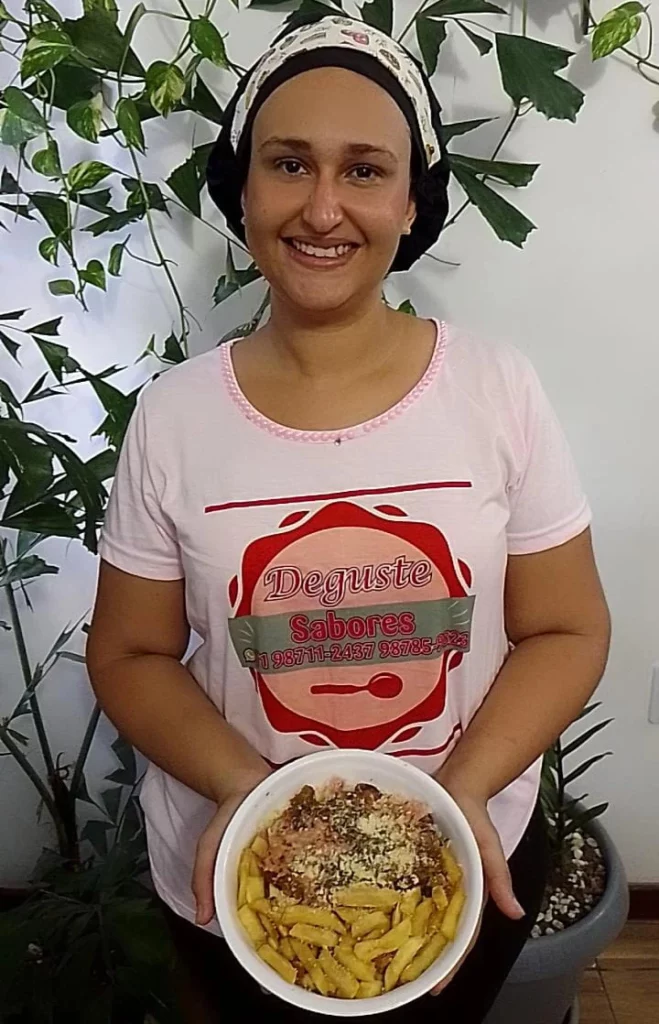The first balance of the iFood Believes shows that for 64% of the entrepreneurs who participate in this exclusive acceleration program for black people, the business brings in at least half of the family income.
The initiative, which is in the pilot phase in Salvador (BA), wants to accelerate the growth of black entrepreneurship on the platform, strengthening diversity and boosting this audience.
Its first results show that 60% of entrepreneurs requested consultancy and that 235 certificates for courses taken on iFood Decola have already been issued to those who participate in the program.
And those who participate in iFood Crédito say that, with support and training, the delivery promised by the program has been carried out successfully.
Valuing the lunch box – and the entrepreneur
This empowerment footprint is already making a difference in the business of Bianca Jade, 29 years old, based in the Cajazeiras neighborhood, in Salvador.
“The program encourages me to value myself as an entrepreneur, to seek my best and to give my best to my clients”, defines Bianca, owner of the Taste Flavors, specializing in lunch boxes.
One of the guidelines she received at iFood Crédito was to improve the pricing of lunch boxes, which were being sold at an insufficient price for the business's growth.
As part of the program, an iFood consultant helped her analyze the menu, the store's performance and what aspects could be improved.
A strategic issue highlighted was delivery times, which needed to be reduced. “I started leaving some items pre-prepared to speed things up,” says Bianca. Deguste was also advised to sell combos, which was not done before.
Another great discovery through iFood Crédito was in financial management. “I learned to separate Bianca from Deguste Sabores. You can't mix personal finances with business finances. Today I establish my pro-labore so as not to compromise the company’s cash flow”, he says.

In his opinion, “iFood thinks about entrepreneurs and the best way for us to work”, he considers. “And it supports our growth.”
Bianca's goal now is to grow the number of orders to 50% by the end of the year. Currently, the average number of lunch boxes sold per month is 370. The ones that sell the most are those with parmigiana and a mix of meats.
Afro-centric burger joint bets on delivery drivers
Another example is the Griot Burger, a family business, with a lean structure, which the owner, Oell Reis, aged 39, defines as “the first Afro-centric burger restaurant in Salvador”.
Oell, who joined the iFood platform in 2021, says he was having difficulty gaining scale. “The burger culture still needs to be widespread in Salvador”, he says.
In August, he participated, through iFood Crédito, in a meeting with the iFood team, alongside other businesspeople. “It was an immersion to clarify doubts”, he says.
One of the tips he received to sell more on the app was to incorporate some of his own couriers into his logistics process to expand the range of deliveries.
iFood Crédito has also helped the entrepreneur to reinforce his focus on the courses of the Takes off, iFood's quick and free content platform for partners to learn how to win more customers and sell better on the app.
In the case of Griot Burger, deliveries go beyond the house's flagship products, such as the Griot Bacon, made from Australian bread, a grilled burger with 130 grams of meat, cheddar cheese, bacon and barbecue sauce, or the beloved strawberry milkshakes and paçoca, all prepared in our own industrial kitchen.
For Oell, more than offering good food, his establishment is a place to praise the achievements of black people throughout history, in different fields of human knowledge, such as science and arts.
Thus, on the Griot's social networks, posts highlighting achievements by black artists and scientists are common. At the physical location, which also opened a few months ago in the Cajazeiras neighborhood, the decoration is rich in themes of Afro-descendant culture.
“We want to combat all types of prejudice, especially racism”, emphasizes Oell, who works in the business alongside his wife, Lorena, who is also a teacher, and his sons Othon, aged 18, and Osvaldo, aged 19.


